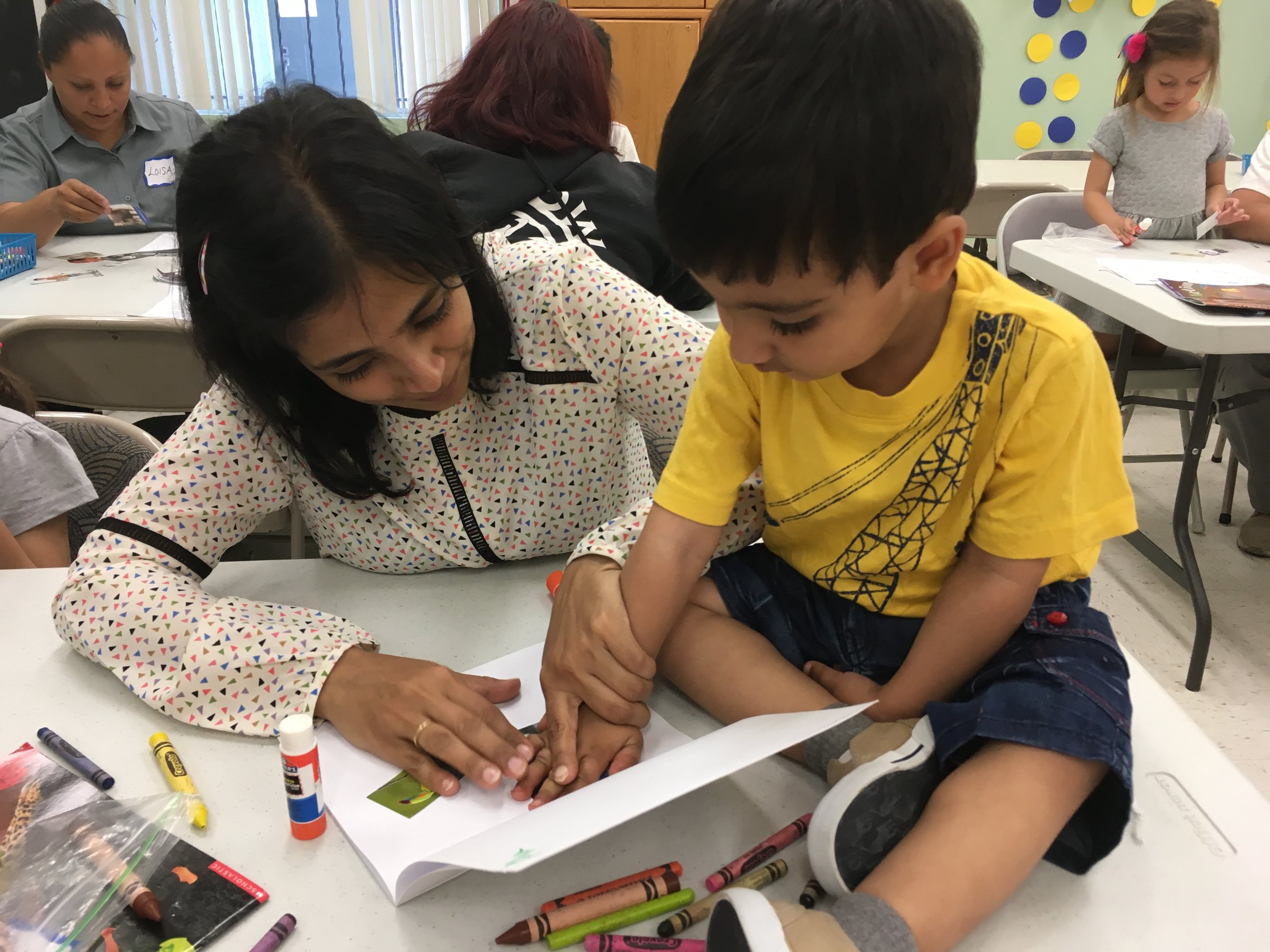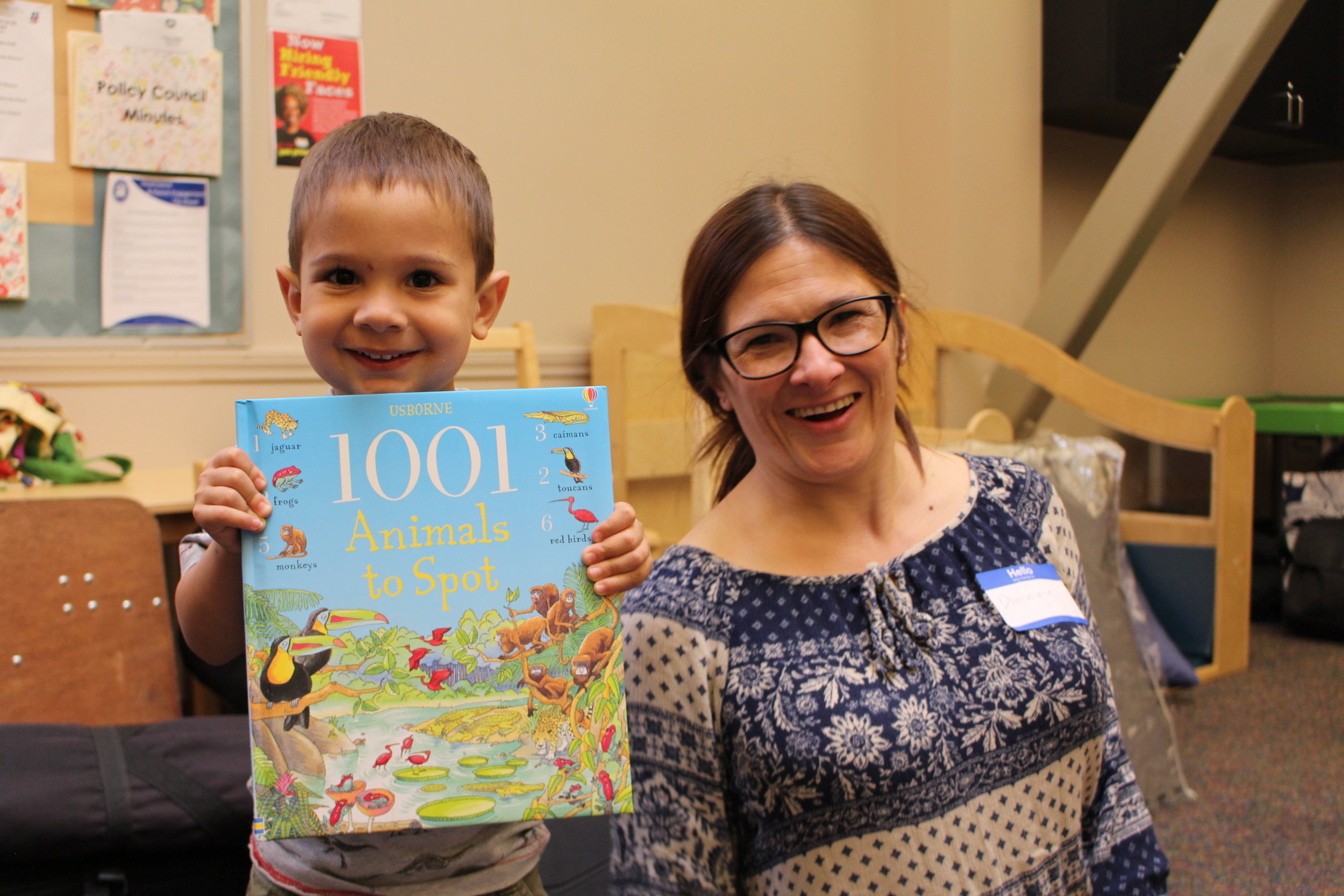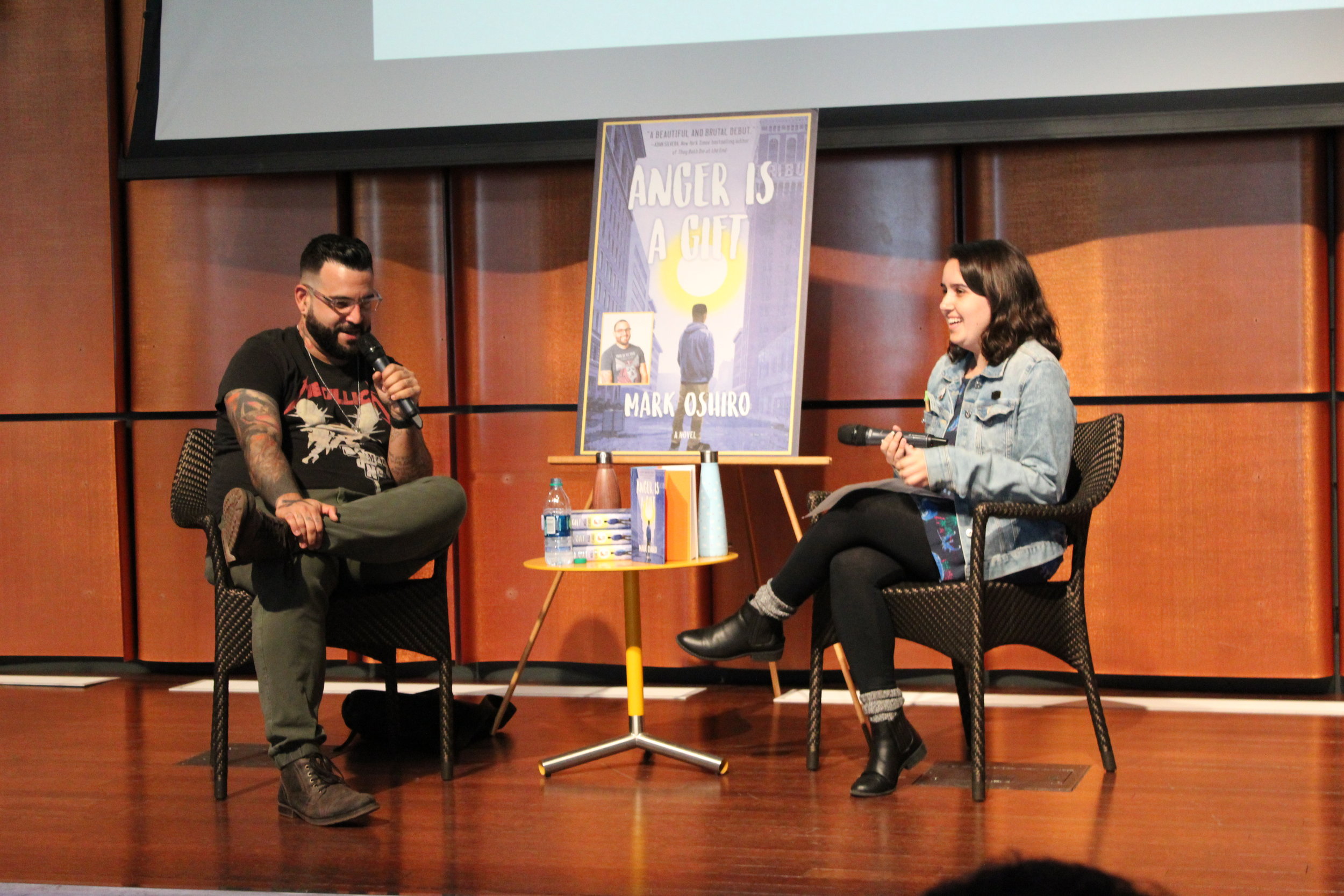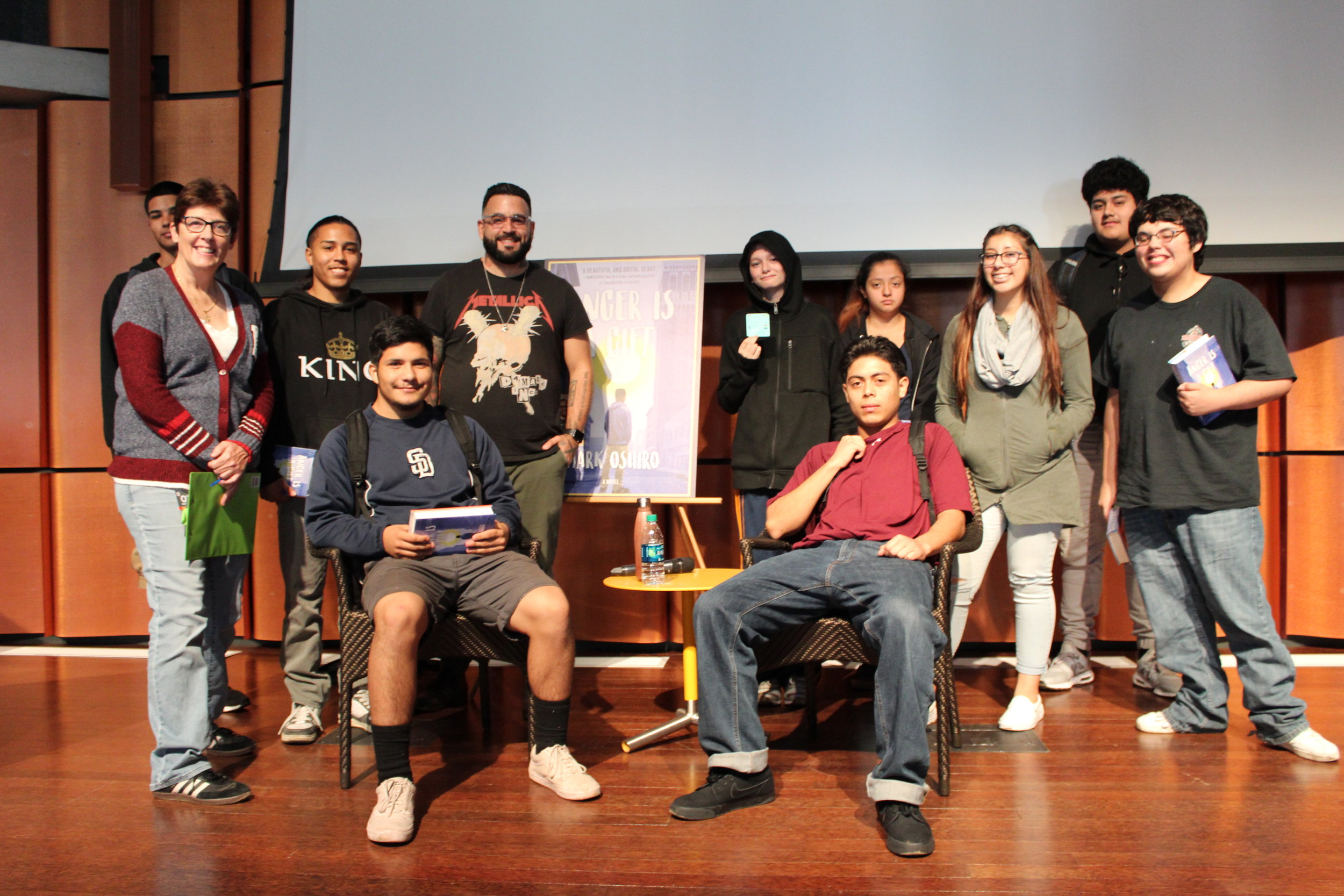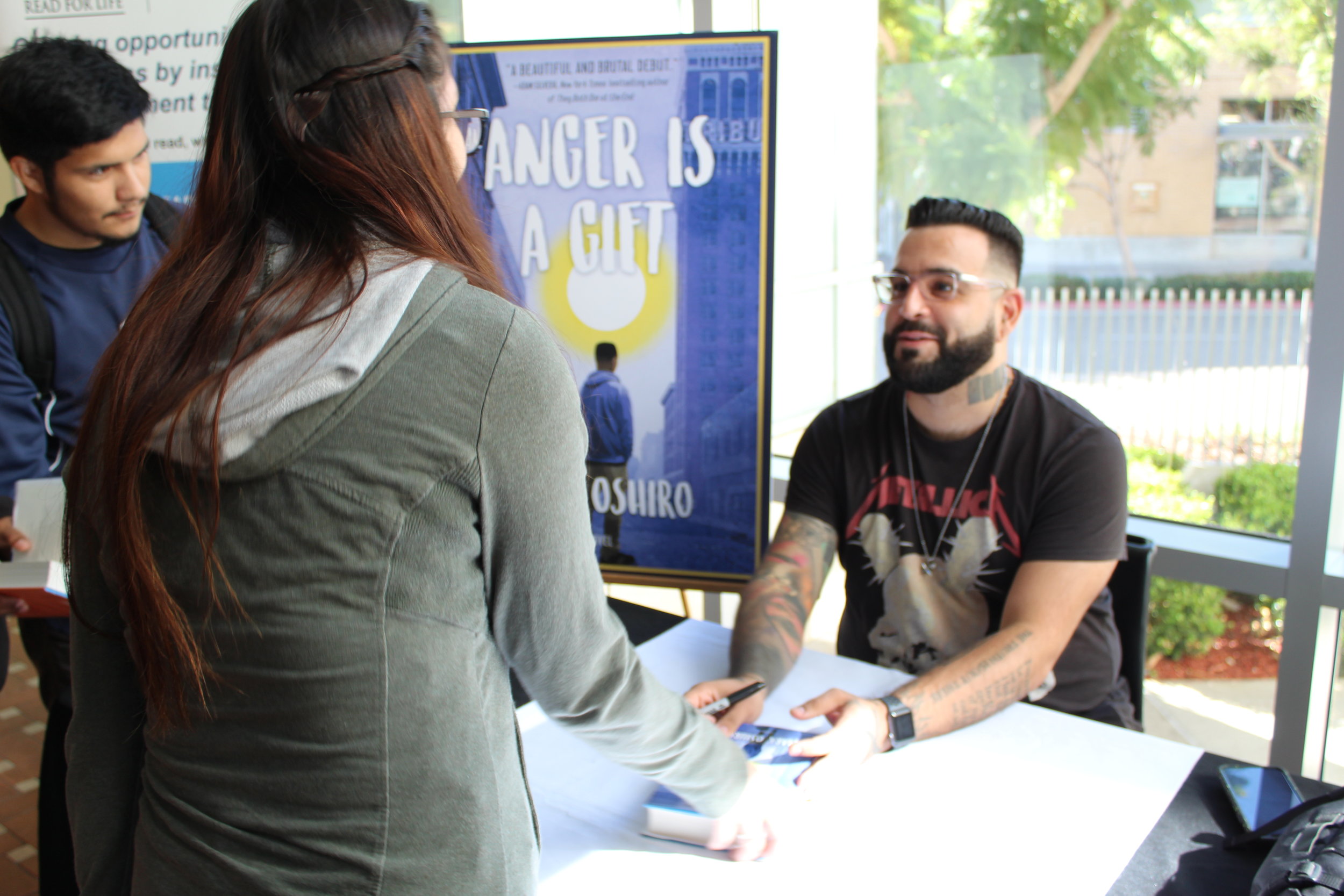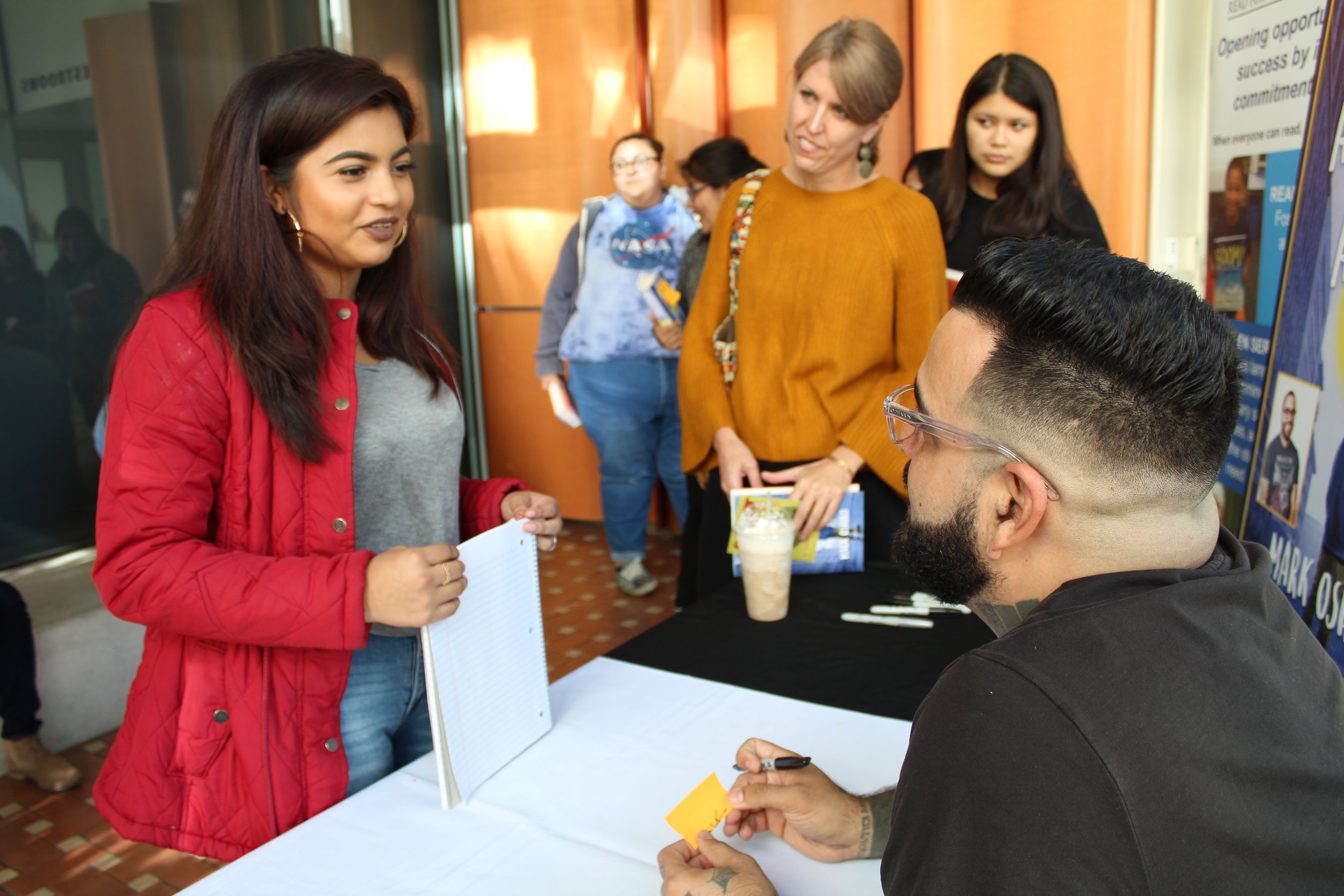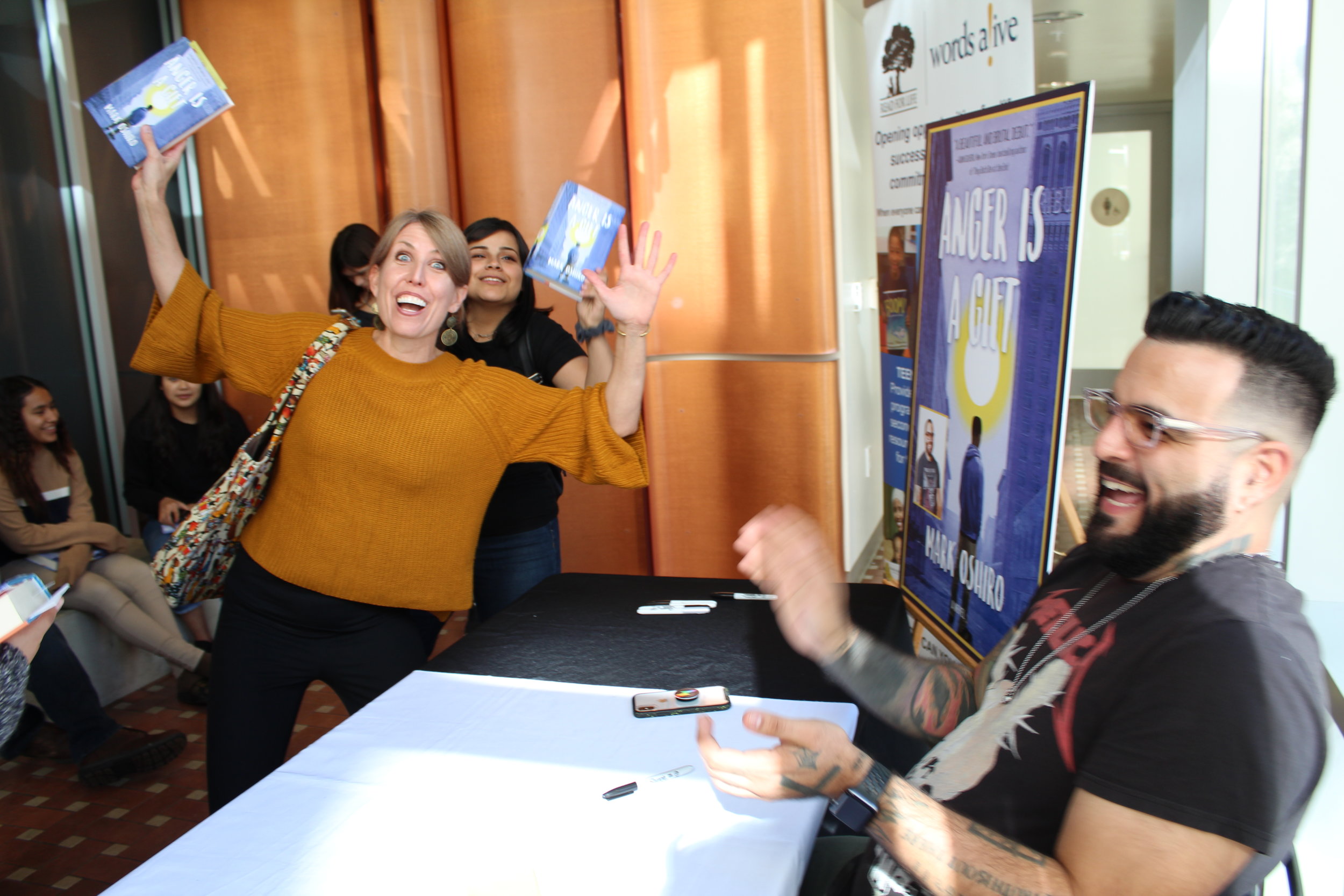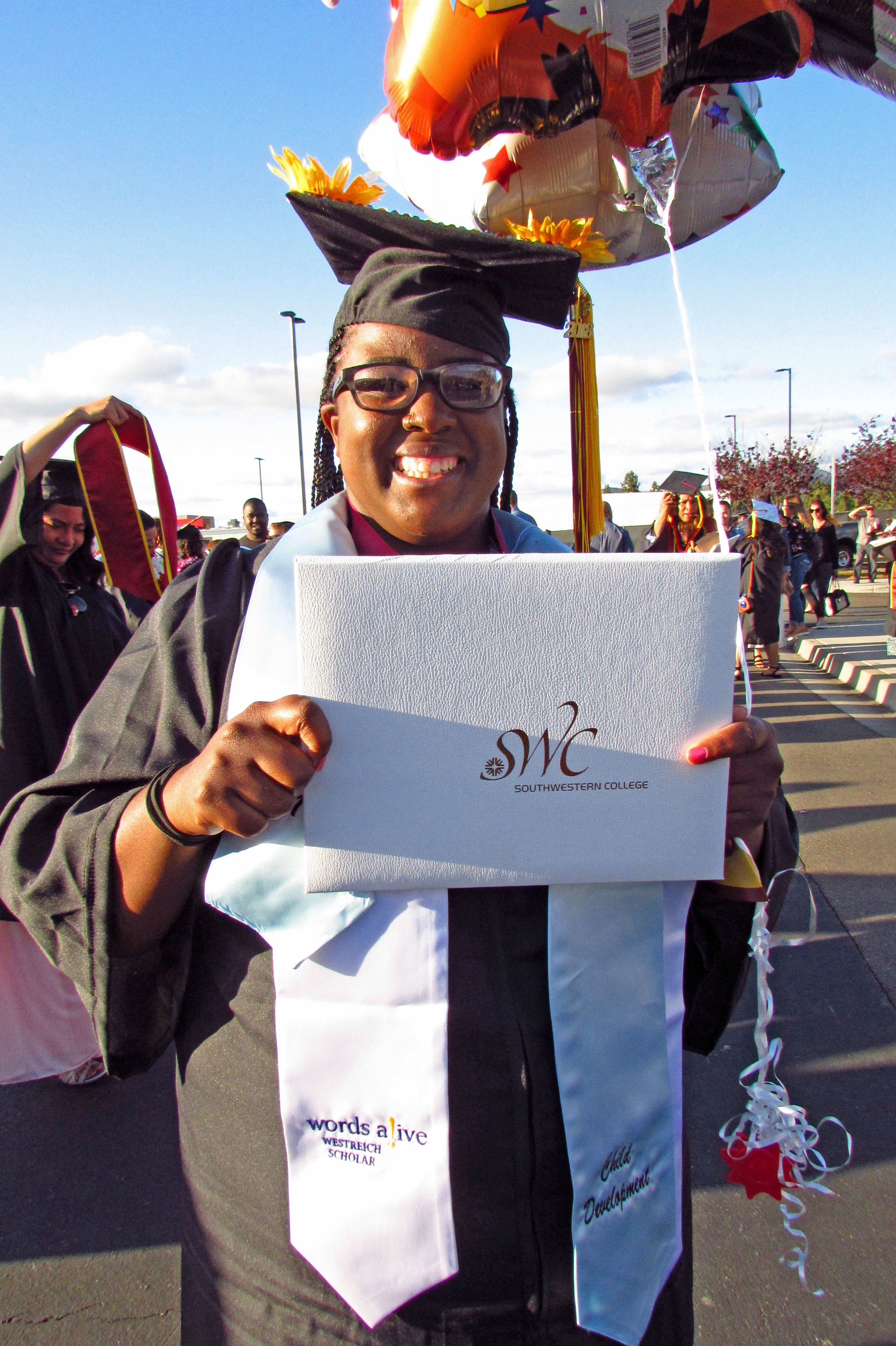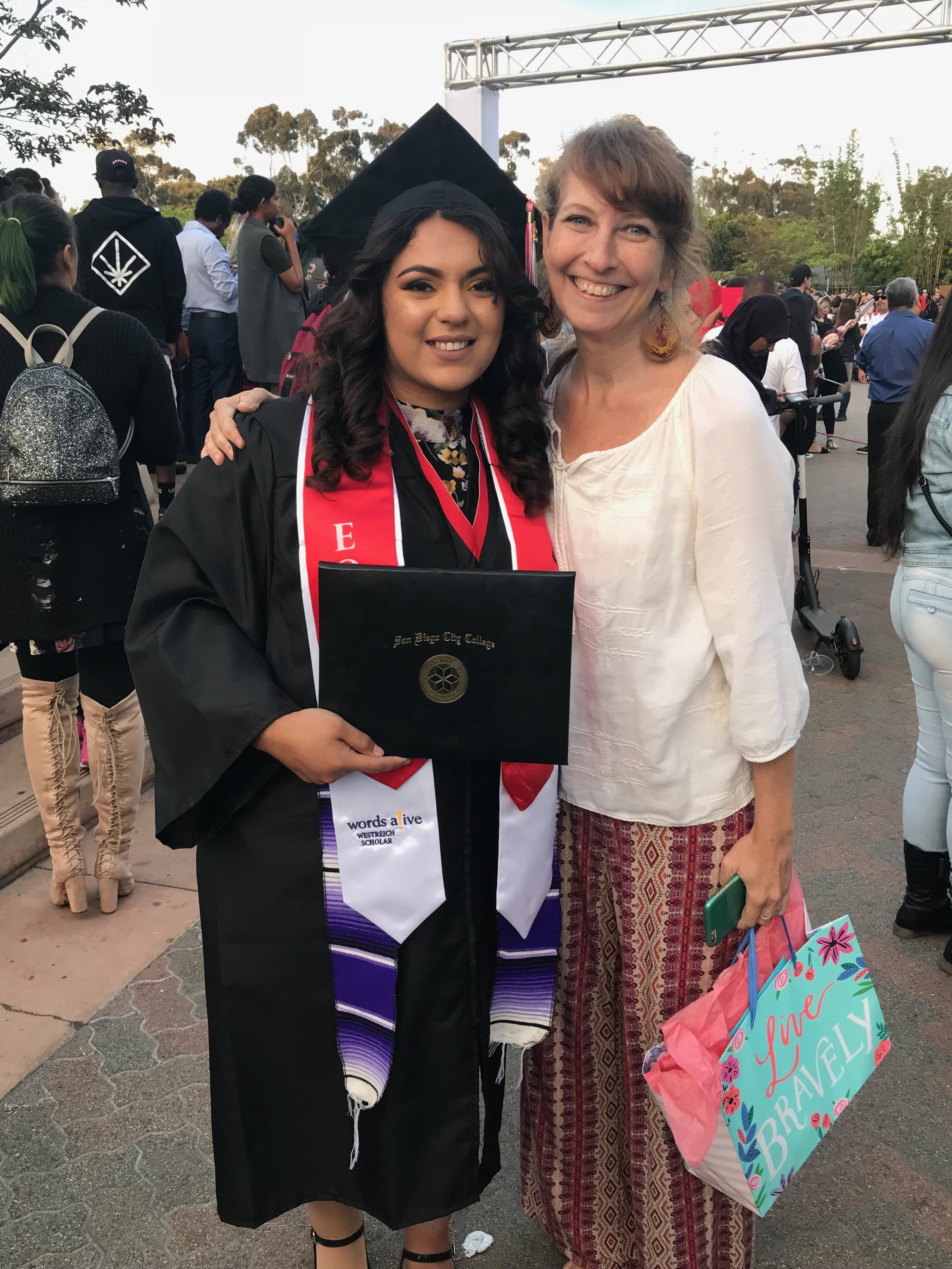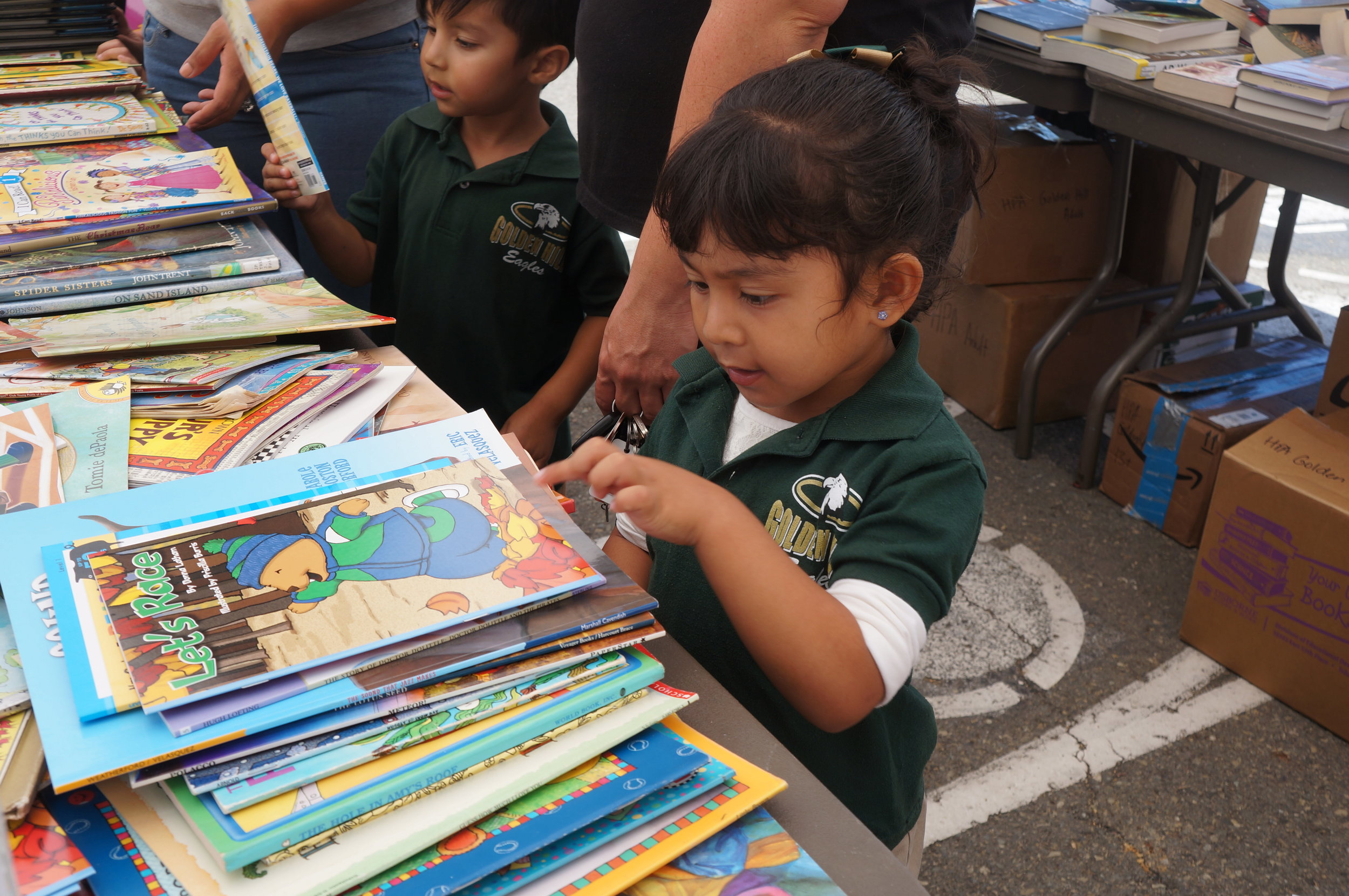Farmers Insurance is partnering with Words Alive to host some special events that will help us inspire more students and families to become lifelong learners. Each year, Farmers Insurance hosts a Women’s Day and Farmers in the Community Session during the week of San Diego’s PGA TOUR event, the Farmers Insurance Open. During these special events, Farmers Insurance employees will be spending a portion of their time stuffing 1,000 Kindergarten Readiness Toolkits for our Family Literacy Program.
After completing seven weeks of fun and engaging programming, our Family Literacy participants are eager to continue learning and using language as a playtime activity. At the end of the program, graduating families receive a backpack with school supplies, alphabet magnets, glue, crayons, scissors, and more. We encourage families to continue spending valuable time together to ignite quality conversation, which is the foundation for learning at this young age.
Words Alive will also be hosting a Read Aloud Program field trip for 60 students from Doris Miller Elementary School sponsored by Farmers Insurance in partnership with the PGA Wives. The PGA Wives will be using our Words Alive curriculum to host a small group read aloud session with students ranging from K-5th grade. At this time, they will also host a small book giveaway where students will receive a copy of the book they are reading and get to choose three of their own to take home.
We are excited to have the opportunity to partner with Farmers Insurance and The Century Club San Diego to serve more students and families. Words Alive is fundraising until the last day of the Farmers Insurance Open, January 27. We are vying to earn up to $30,000 in bonus funds. Donate today to help us reach our goals.



